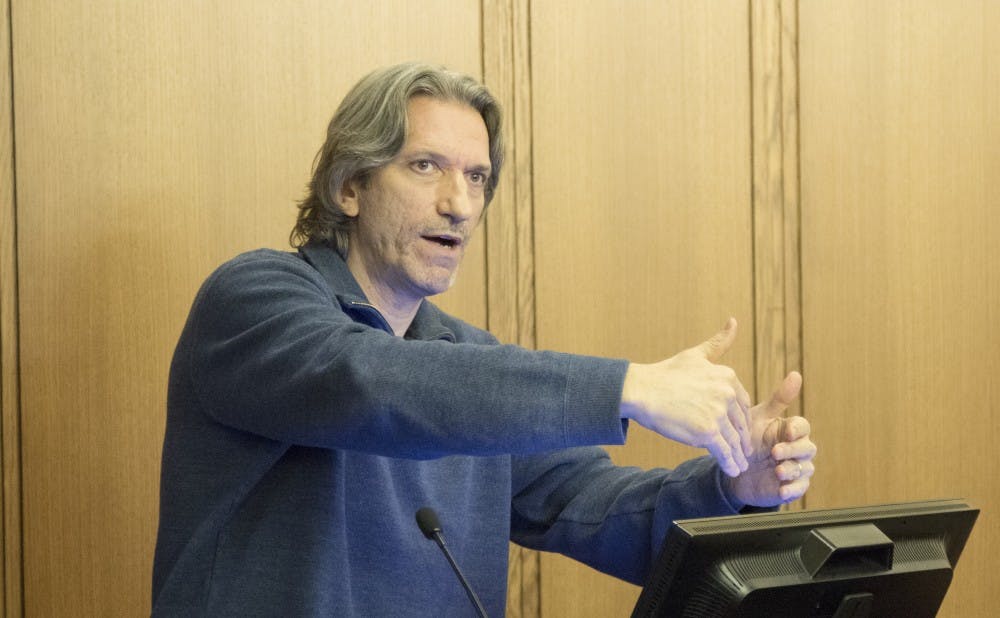Human rights activist John Prendergast outlined the issues plaguing South Sudan, the world’s newest country, during a talk Thursday night in Rubenstein Library.
After decades of civil war, South Sudan gained independence from Sudan in 2011. But another civil war broke out in 2013 between the government and opposition forces, largely revolving around economic conditions and natural resources. Prendergast—founding director of the Enough Project, an initiative to end genocide and crimes against humanity—discussed how greed and corruption have led to South Sudan's history of conflict.
“War has been hell for South Sudan’s people, but it’s been extremely lucrative for the country’s leaders, and their international commercial facilitators and enablers,” Prendergast said. “These are South Sudan’s war profiteers.”
In South Sudan, militias—often controlled by the country's leaders and based on ethnicity—are common and can target civilian populations. Their war tactics include burning villages and food stocks, denying humanitarian aid workers access and forcing women into sex slavery.
"All these atrocities become routinized," he said. "This is the normal way wars are fought now in many of these African countries."
Prendergast added that leaders have little incentive to promote peace when it is more profitable to have a war—especially because militias are able to loot communities.
“These aren’t failed states, these are hijacked states," he said. "They’re very effective at what they’re trying to do."
The South Sudanese government has become what Prendergast calls a “kleptocracy,” in which corruption is not an anomaly but the very premise of the system itself.
He cited how the country's budget rapidly expanded in its first five years as evidence of corruption.
“The budget in that first year was around $100,000,” he said. “In that second year, the budget was around $1.5 billion—oil money. Now that there was peace, they could extract oil at a much faster rate. The money was pouring into that budget and disappearing.”
Prendergast emphasized that though the political climate of South Sudan may seem shocking, the relative newness of the country makes it naturally volatile. South Sudan is only five years old, while many other African states have been independent nations for 50 or 60 years.
He drew comparisons between South Sudan and the United States when it was only 60 years old—noting that at that time, the U.S. used the trans-Atlantic slave trade as a huge economic boost.
"At its 60 [years], the United States had not yet fought its own civil war, which was one of the deadliest wars in per capita terms, in the history of the world," he said. "South Sudan—and Africa broadly as I would argue—is not so different from the United States and Europe."
However, Prendergast noted that patience, proper investments and proper policies can lead to turnarounds even in the places with the worst human rights abuses.
Prendergast’s organization, the Enough Project, aims to end genocide by developing and advocating for policy recommendations. One of its strategies is to target banks that allow the leaders in South Sudan to profit off war, a strategy that Prendergast said was effective in eventually putting Osama Bin Laden out of power.
“Focus the regulatory and policy response to try to get at that money,” Prendergast said. “True conflict transformation is possible when the war economy is dismantled.”
Get The Chronicle straight to your inbox
Signup for our weekly newsletter. Cancel at any time.

